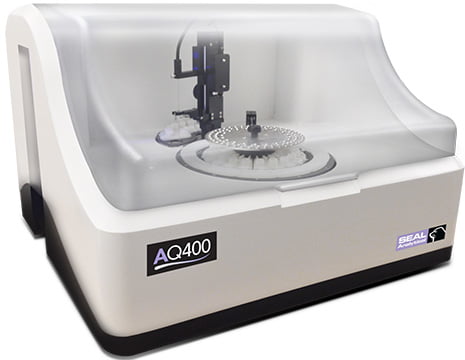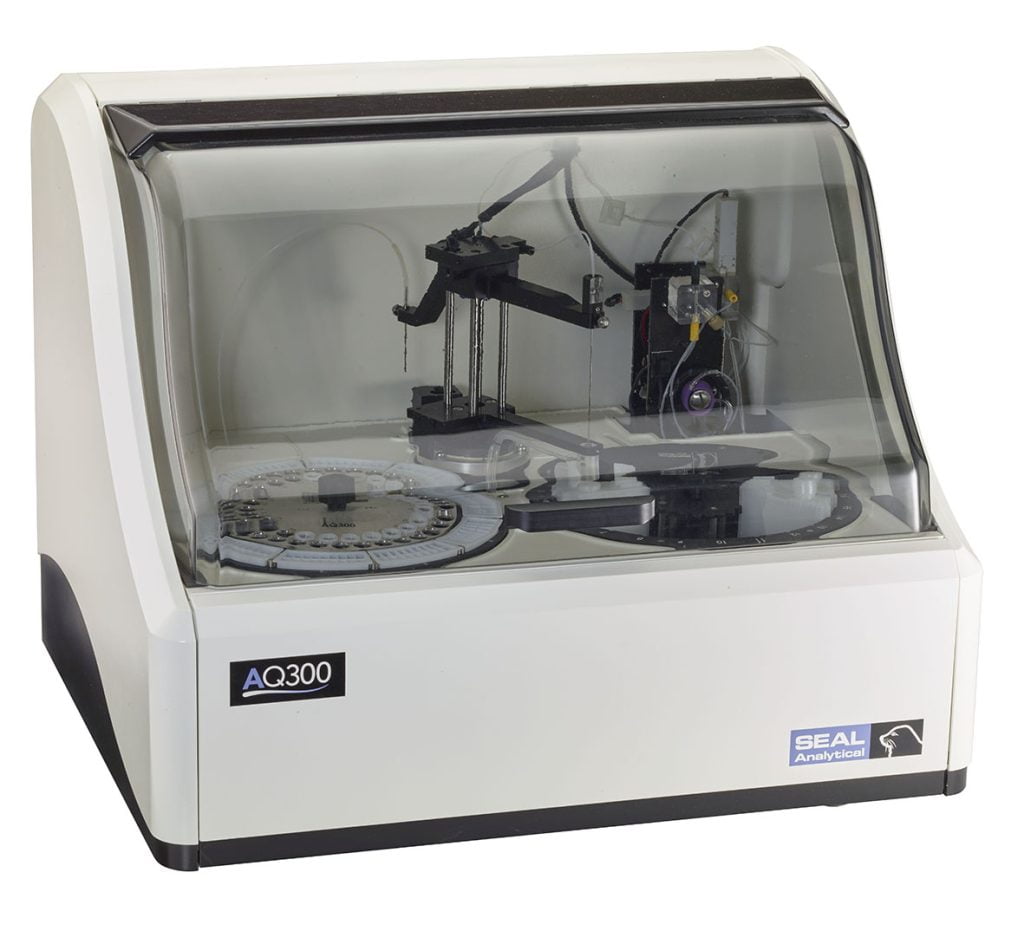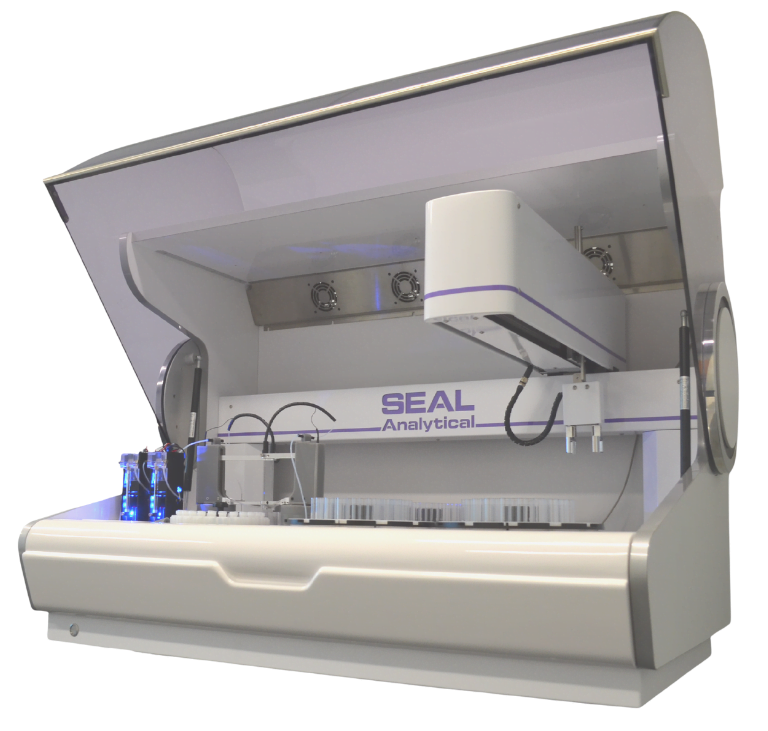The AQ400 Discrete Analyzer for environmental testing brings increased speed, capacity, flexibility, and reproducibility to your analysis with a compact benchtop footprint.
This compact, bench-top analyzer is designed by chemists to meet the needs of environmental laboratories. It offers high automation, broad chemistry capabilities, low detection limits for regulatory compliance, and seamless LIMS integration.
The AQ400 leverages advanced robotics for rapid sample preparation, making it ideal for diverse testing on multiple samples within a short timeframe. Additionally, it can function as a standalone spectrophotometer.
Why choose the AQ400?
Automation
- Automated sample spiking
- True unattended operation with the ability to run overnight
- Advanced robotics for faster sample preparation per hour
Efficiency
- Easy maintenance & easy change syringe
- Ultra-low reagent consumption
- Ability to add samples after the run has started
- Small footprint saves bench space real estate
- Silent operation
- The ability to use as a standalone spectrophotometer, ideal for COD
- True automated sample blanking for background colour correction
Compliance
- Chemical reaction brought to full completion emulating manual and segmented flow method
- No carry-over or cross contamination
- Lower detection limits
- Methods have USEPA approval for both wastewater and drinking water
- EPA recommended optically pure and inert glass cuvette
Methods of the discrete analyzer for environmental testing
The SEAL AQ400 Discrete Analyzer supports a wide range of methods for key analytes relevant to environmental laboratories analyzing water, wastewater, and soils. In compliance with EPA methods, ISO methods, Agricultural methods, and Seawater methods.
These methods include:
- Alkalinity
- Ammonia
- Chloride
- Cyanides
- Nitrate / Nitrite
- Nitrite
- Phenolics
- Phosphate, ortho
- Phosphorous, total
- Silicate
- Sulfate
- Total Kjeldahl Nitrogen
- Total Phosphorous
- And much more
How does it work?
The SEAL AQ400 uses a robotic sampling arm and a stepper-motor driven syringe to aspirate, dispense, and mix precise amounts of sample and reagent into miniaturized reaction wells. These samples and reagents incubate then in the wells for a pre-programmed duration.
A single aliquot transfers to the stop/flow optical-quality glass cuvette. The absorbance is measured in a stationary optical bench to ensure the best signal-to-noise ratio. Reaction times can be programmed from seconds to minutes. Optimized methods ensure full reaction completion and steady state, achieving low detection limits and excellent reproducibility.
A second robotic arm transfers the reactant or sample from the reaction wells to the detection area. The sample is consistently read in the same position in front of the detector and in the same glass cuvette. This eliminates issues such as scratching and variability commonly associated with direct read systems. Since only the liquid is moved, not the tray, the system has fewer moving parts, resulting in higher reliability.
The unique probe washer pumps water through as the probe moves up and down, thoroughly cleaning its exterior before the next use. This effectively eliminates potential cross-contamination from reagent drips.
Once the absorbance is ready, the cuvette cleans automatically and thoroughly, eliminating carryover or cross-contamination.



